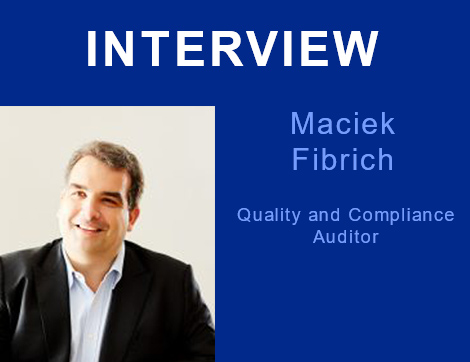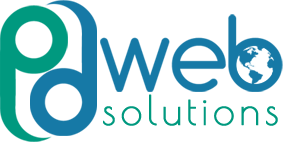
Maciek Fibrich is the Director of RTO Coaching and Consultancy Pty Ltd which provides amongst other services, coaching, mentoring and consultancy services as well as professional development and operational support to training organisations across Australia. Maciek has been working in the Vocational Training sector for 21 years and as a consultant for over 15 years focusing on the development of training within the Australian Vocational Education and Training industry.
Over the years, Maciek has mentored many business owners, company directors and CEO’s on developing internal systems to streamline their practices. Maciek has also employed over 25 staff, whilst managing a company with 8 business activities.
Maciek holds a Bachelor of Applied Science and various vocational qualifications including the Diploma of Quality Auditing, Diploma of Training and Assessment as well as a Certificate IV in Business Management; and Training and Assessment. Maciek holds his Lead Auditor Certification and has professional membership with the Australian Institute of Training and Development, the Institute of Learning Practitioners and the Institute of Learning and Development.
On a personal level, Maciek has been actively involved with the Polish community, participating in and leading a range of youth groups including the Polish Scouting Association of Australia, a number of Polish Folk dance groups and youth leadership programs, the sport of Volleyball, as a player, coach and national and International referee, officiating during both the 2000 Sydney Olympics and Paralympics.
Here is a copy of Maciek Fibrich’s interview conducted by Sukh Sandhu.
It is always a pleasure to speak with you as one of the most highly regarded and quality-conscious consultants in the RTO sector. So the questions prepared by The VET Sector experts for you are:
Q1: When it comes to quality consultants, what are the top five qualities that RTO clients should look for?
Everyone defines quality differently and what I regard as a quality consultant may be very different to someone else’s perspective. Five qualities I believe help make a quality consultant include honesty, integrity, the ability to interpret other people’s information, always looking for a better way and of course a solid understanding of the systems we are working with.
At the end of the day, you need to feel comfortable with the consultant you are working with. You need to be comfortable learning from them, comfortable asking all the perceived ‘silly’ questions as well as the tough questions and trusting them to do the right thing. But, remember that you also need to do your part of the process and not rely on the consultant to do everything for you as it’s not them answering the questions at audit.
Q2: You have been a fairly objective observer of regulatory activity in Australia, so how would you describe the regulatory climate in Australia right now? ‘
I believe we are in a good space with regards to ASQA. Is it perfect? Far from it! Is it costly, yes! Excessively? Possibly. Money aside, (said no one ever), I think the changes that have come this year have definitely helped mend many bridges, however, there is still a long way to go.
I believe we have taken some amazing steps, and the management team at ASQA should be congratulated for being proactive and hopefully things keep progressing. I have already observed and participated in some regulatory processes that have truly brought a smile to my face and hope these instances continue.
That said, providers must not get complacent! The current COVID relief packages will end soon, and the restrictions on movement will ease, and while it’s been easy to fly under the radar, this does not mean we have been exempt from being compliant and properly managing our businesses. If, like our personal COVID kilos, we’ve let ourselves go in the compliance and business area, it’s now time to start a solid routine and get the business pumping again. You don’t want the shock of an ASQA audit to be as bad as the first time you jumped on the scales in 12 months!
Q3: When it comes to RTOs, what are the top five characteristics that distinguish a good one from a bad one?
Like the first question, the perception people have about a good RTO will be dependent on their needs. Some people want a hassle-free ‘quick’ qualification, and others want the full service, 12 month-guided experience.
So that said, I believe a good RTO is one that listens to its customers, supports the industry it’s ‘feeding’, understands that business and compliance have to go hand in hand, and implements that critical systematic approach to its operations to ensure it can achieve, what I promote, profitability, scalability and sustainability. A good RTO will generally have an internal culture of education
A good RTO will ensure the outcomes of its students meet the needs of both students and the vocational area the student is studying. From a business perspective, a good RTO is one that understands the business that it’s in, understands what problems it’s solving and can implement the principles of transparency, autonomy and accountability within its processes.
A ‘bad’ RTO? I guess that would be the opposite of a good RTO, but I also want to differentiate a bad vs dishonest RTO. Any dishonest RTO would be a bad RTO. One that cheats the system for gain, ‘sells’ its qualifications, exploits students and funding etc. A bad RTO would be one that also doesn’t care about its students, doesn’t understand the business that it’s in and generally has a disregard for compliance and the needs of the industry. Bad RTO’s often have a cultural issue that comes from the top, or in ‘cells’ within the business. It’s not hard to turn bad RTOs into good RTOs, but it does take commitment from the top.
Q4: What kind of services do you provide to RTO clients through your consulting company?
The main service I now provide is education. One thing the 20+ years of consulting has taught me is that if we don’t educate our clients, we fail them. We also need the clients that want to be educated but that’s a whole other issue. Over the years, I have provided basically every type of service needed within an RTO, but now I like to focus on the coaching and mentoring side of my business. This gives me the greatest amount of satisfaction and joy as I see better results over the medium to long term.
While I still do the small bits of consultancy, they are not my focus area as I find that there is a level of dependency that is developed when you do everything for the client. If I teach my clients, and their teams, to understand the issue and help them implement the fix, this empowers the team and avoids statements like, ‘Oh he’ll do it’.
About two years ago, I launched my CMC program, which incorporates Coaching, Mentoring and Consultancy into a weekly solution for any CEO or manager who wants to understand their business at a much more intimate level. The program explores challenges and issues within the business and we work on solving those issues. We then educate the team on the issues and solutions, and once we have the foundations set, we can then build the solution. I find this a much more effective approach to simply ‘doing it for the client’.
Q5: You and your colleagues Tamara and David host a fantastic monthly meeting session that is completely free of charge. What inspired you to start this and how has your experience been so far?
Thank you for the kind words! Tamara is the brainchild behind the monthly sessions and she approached us to see if we wanted to be involved. For me, sharing knowledge and teaching others, and making the world and our industry as a whole, better, is what drives me, and I think that can be said for most people within our industry. If I could do it daily, for free, I honestly would. Thankfully, my business is doing just that, and I am fortunate enough to be paid to educate others so I truly feel like I don’t work. I love what I do and that passion drives me!
The experience so far has been great and the feedback has also been great. It’s a real honour and privilege to be able to share my learnings from the past 20+ years of working within the industry to help overs and hopefully, improve their businesses and the lives of their students and staff.
Q6: What are the most effective survival tactics for organisations working in the current environment?
- Know your business. If you are flying by the seat of your pants, and have survived, you’re lucky but business is not about luck. Know your numbers and review them. At the end of the day, for most, an RTO is a business and is designed to make money. Even those that are not out to make money, still need to know their numbers to ensure whatever funding source is feeding them doesn’t dry up one day.
Questions you should be asking; What is your cost per lead? Cost of acquisition? Profit per student? Percentage spent on marketing? etc etc. - Know the climate and environment. How does the regulatory approach align with your current business practices? Do you have a systematic mindset? Does your team have a whole of business attitude where compliance isn’t one person’s job? Is there a shared understanding of the clients and industries needs so that everyone within the organisation can effectively input into the growth and sustainability of the business? The more you understand your business, the documents and processes that exist within your business, the better prepared you will be for any challenges that arise.
- Focus on what you are doing, not what the others are doing. I’m not saying don’t look at your competitors, but it’s too easy to get caught up with the concept of following the herd. Until you understand where the herd is going, you are following blindly. Too often we see within this industry, a race to the bottom in terms of pricing and course duration and newcomers follow because they want a piece of the action, only to find they are not making money. Make sure you have a plan, focus on your plan and amend as required. Make sure your team is on board.
- Keep the passion, park the ego and emotion. Passion is key to the success of any business and job. Without passion, little things become problems, resentment sets in and issues fester a lot quicker. Passion is what drives up and when we lose that passion, we either need to take a break and find it again or pivot and change the way we do things. I have pivoted my business countless times as I grew. From focusing on straight admin management in the early days, to countless startups and now my coaching programs. As I got bored, and wanted more, I reinvented myself to ensure the passion kept burning.




Recent Comments